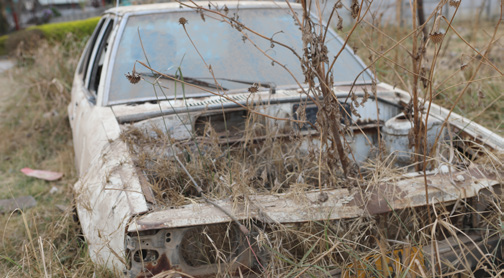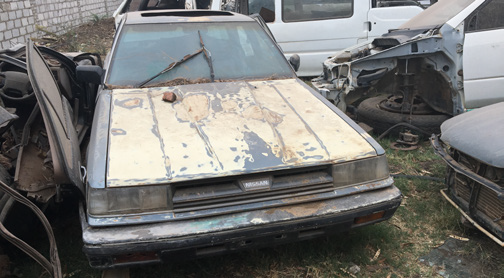
Everyone celebrates the receipt of a brand new vehicle and more recently taking ownership a good used vehicle into one’s fleet. Cars are very useful during their operational life cycle as a means to transport both people and goods. At the end of their operational use, there is very little knowledge about how to manage end-of0life vehicle waste.
Very little progress has been made in the area of end-of vehicle life cycle. The sight of wretched and abandoned car bodies in residential and industrial areas is becoming a common site. From an economic perspective, it is very difficult for many individuals to envisage that a vehicle can reach a stage where it is totally without value. Many waste products are generated when a vehicle passes its useful life cycle. Some of this material includes metal waste from the car bodies, rubber, hazardous lubricants, leather, fabric and glass.
Used car bodies are normally left as empty shells after car breakers salvage some vehicle parts which can be retrofitted on other car bodies. Vehicle workshops, distributors, garages and automotive companies have yet to devise new strategies to deal with end of life vehicles. Once seen as a developed country problem, it is slowly growing in developing countries. Countries should develop policies and legislation to deal with end of life vehicle including recycling opportunities.
Author
-

Tawanda Collins Muzamwese is the Editor in Chief of the Green Business Gazette Magazine. He is is an international consultant in sustainable business development with massive experience in training, consulting and auditing. He has facilitated capacity development in more than 100 enterprises drawn from over 30 countries. He is the founder of the sustainability think-tank called Toxiconsol Consultancy t/a African Sustainability Consultants. He is the Editor in Chief of the Green Business Gazette Magazine. He is a consultant and business coach with over 13 years experience. Tawanda is a Management Systems Consultant working on promoting development and implementation of ISO Standards (ISO 14001:2015, ISO 9001:2015 and ISO 45001:2018) in both developed and developing countries. With his inspirational and pragmatic writing style he has written cutting edge books including: 1) How to grow a Side-hustle into a viable business - Overcome Salary Dependency 2) The Leading Consultant: How become an authority in your professional field 3) Step-by-Step Guide to implementing Safety, Health, Environment and Quality Management Systems 4) Stepping on Higher Perspectives: Greatness Tips Motivational Series 5) Sustainability Guidebook for Boards and CEOs: Leading from the front Tawanda writes about sustainability, motivation, safety, health, environment and quality management. His books are relevant to both developed and developing countries. With practical approaches and case studies, he provides incisive insights into entrepreneurship. His philosophy is based on the premise that every human being has potential to make a significant difference in their lifetime. He writes books on taking personal responsibility for progression in life. He motivates entrepreneurs to implement income generating projects and determine their own financial destiny. He also motivates companies to take up sustainability initiatives. A start-up coach, public speaker, environmentalist, safety, health and quality management expert, Muzamwese bridges the gap between theory and practice through building capacity and sharing practical case studies in his books.
View all posts



